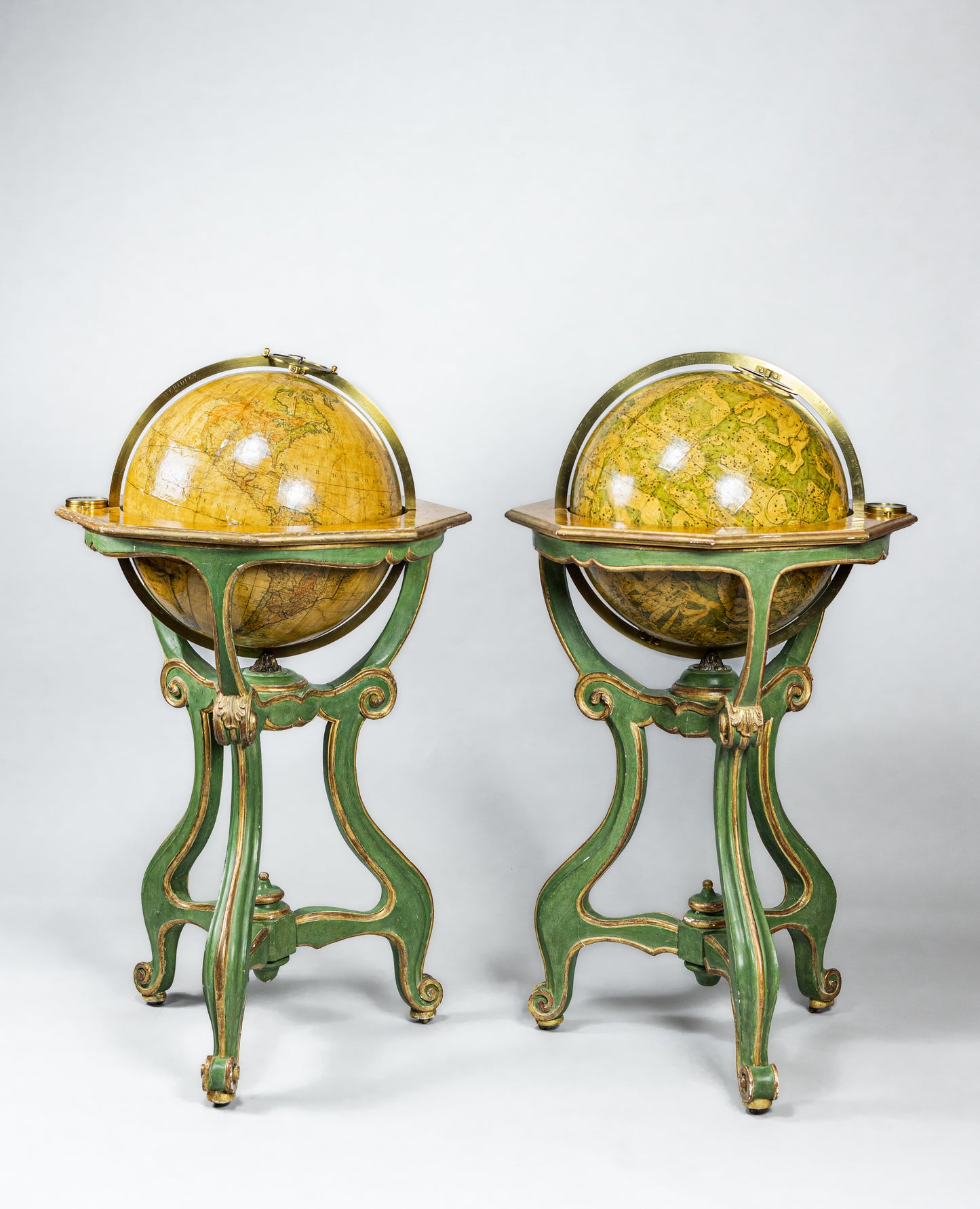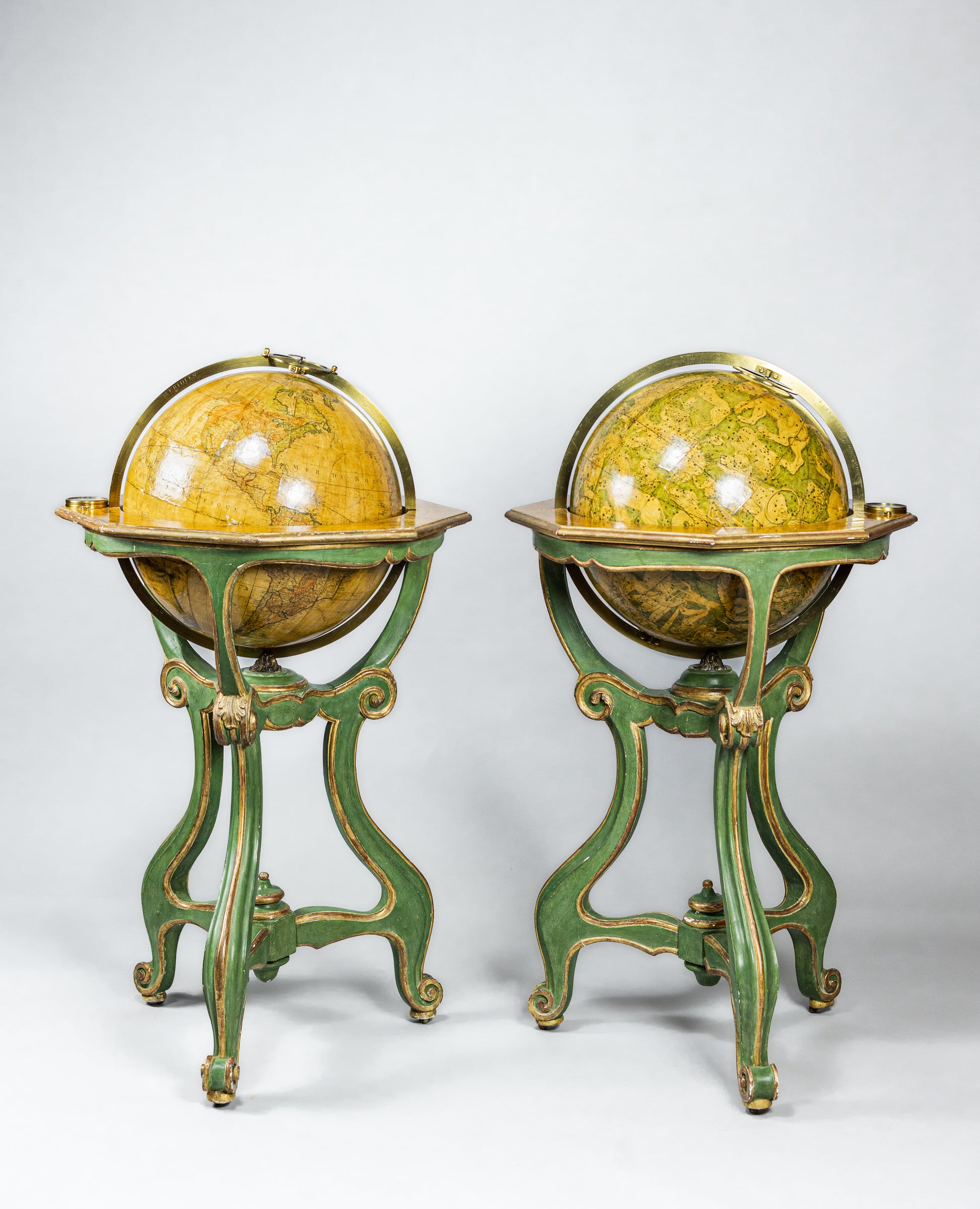Didier Robert DE VAUGONDY. Globe Terrestre; Globe Celeste. Paris, Terrestrial 1773; Celestial c. 1764
Didier Robert DE VAUGONDY. Globe Terrestre; Globe Celeste. Paris, Terrestrial 1773; Celestial c. 1764
Couldn't load pickup availability
A pair of Louis XV terrestrial and celestial library globes on green-painted and parcel-gilt stands. Each globe made up of two pairs of hand-colored engraved gores, each with polar calottes. Brass hour circles, the terrestrial mounted on the meridian with its pointer arm, and with the celestial mounted below the meridian without the pointer, brass meridians graduated on one face. Hexagonal horizon bars with original papers, supported by a curved four-legged parcel-gilt original late 18th century stands, cabriole legs joined by arched stretchers, ending in scrolled feet.
Paris, Terrestrial 1773; Celestial c. 1764
Diameter 18 in.; Height 45 in.
Provenance: Kugels, Paris; Mr. and Mrs. Stephen C. Hilbert
A magnificent pair of French library globes by the doyenne of French globe makers. These remarkable 18-inch globes were first offered for sale by Gilles de Vaugondy in 1751 through subscription, then reissued in 1764 and again in 1773 by his son Didier. Stevenson did not know Lucca and single celestial 1764 in Venice. One suspects that there were many pairs that graced the stately homes of France, which have yet to be recorded.
Didier de Vaugondy became the leading publisher of French globes in the second half of the 18th century. His work became renowned not only for his affinity for and abilities in cartography, but also for his innovation in the mounting and presentation of globes. His skills earned him the honored position of "Geographe ordinaire du Roi," and the invitation of Denis Diderot to contribute an essay to the first edition of Diderot's Encyclopedie. Along with his brother Martin, Didier de Vaugondy developed his cartographic skills in the workshop of his father Gilles (1688-1766), on the quai de l'Horloge near the Louvre. Here, they published maps and atlases as well as re-issues of the geographical work of his grandfather Nicolas Sanson's publications. By the time he was twenty, Didier de Vaugondy had been trained enough to have published his first pair of globes.
His most famous accomplishment is the royal commission he received for a pair of globes for the use by Navy. These were the largest globes produced in France since those by Vincenzo Coronello/Nolin. They were presented to the Royal Academy of Sciences towards the end of 1751. From 1784 until his death in 1786, Vaugondy worked with Nicolas Gabriel le Clerc and Dome Claude Bergevin on the project for a globe of eight pieds (102 inches) diameter. The globe is preserved at Versailles, although Vaugondy did not live to see it completed. Vaugondy's firm was taken over by Jean Fortin in the 1770s and then by Charles-François Delamarche. The Delamarche firm were still making globes up until the 1830s.


